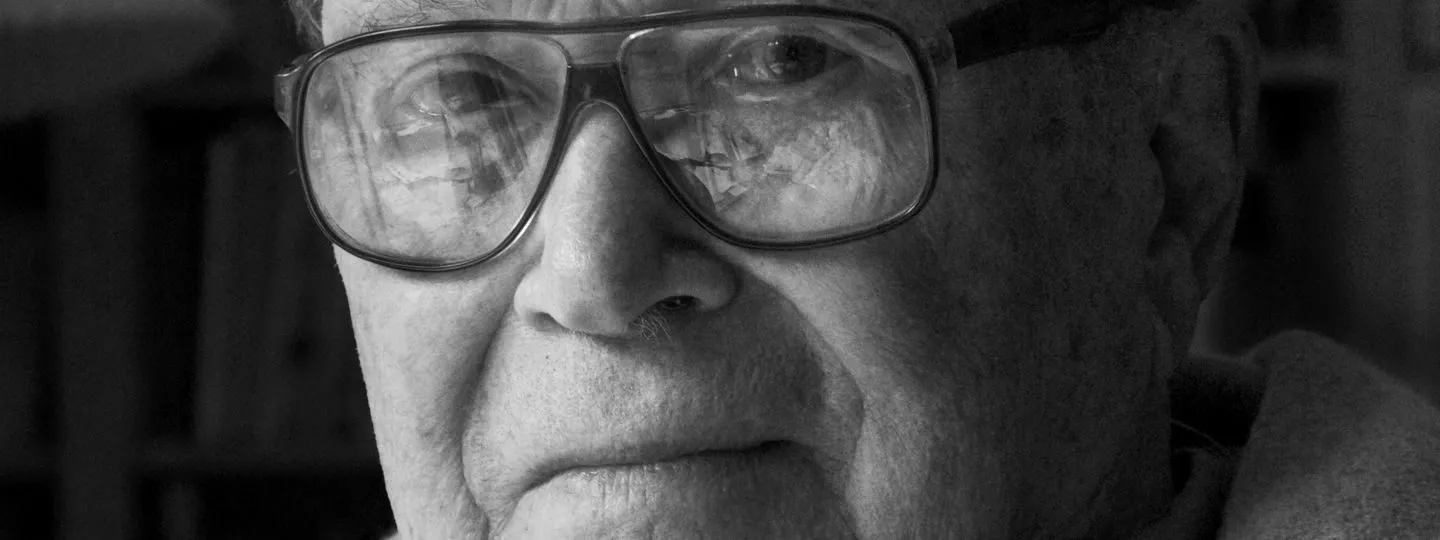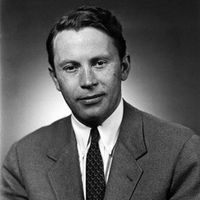
Richard Wilbur
Richard Purdy Wilbur (born March 1, 1921) is an American poet and literary translator. He was appointed the second Poet Laureate Consultant in Poetry to the Library of Congress in 1987, and twice received the Pulitzer Prize for Poetry, in 1957 and again in 1989.
Richard Purdy Wilbur (born March 1, 1921) is an American poet and literary translator. He was appointed the second Poet Laureate Consultant in Poetry to the Library of Congress in 1987, and twice received the Pulitzer Prize for Poetry, in 1957 and again in 1989.
Biography
Early years
Wilbur was born in New York City March 1, 1921 and grew up in North Caldwell, New Jersey. He graduated from Montclair High School in 1938, having worked on the school newspaper as a student there. He graduated from Amherst College in 1942 and then served in the United States Army from 1943 to 1945 during World War II. After the Army and graduate school at Harvard University, Wilbur taught at Wellesley College, then Wesleyan University for two decades and at Smith College for another decade. At Wesleyan, he was instrumental in founding the award-winning poetry series of the University Press. He received two Pulitzer Prizes for Poetry and, as of 2009, teaches at Amherst College. He is also on the editorial board of the literary magazine The Common, based at Amherst College.
Career
When only 8 years old, Wilbur published his first poem in John Martin’s Magazine. His first book, The Beautiful Changes and Other Poems, appeared in 1947. Since then he has published several volumes of poetry, including New and Collected Poems (Faber, 1989). Wilbur is also a translator, specializing in the 17th century French comedies of Molière and the dramas of Jean Racine. His translation of Tartuffe has become the standard English version of the play, and has been presented on television twice (a 1978 production is available on DVD.) In addition to publishing poetry and translations, he has also published several children’s books including Opposites, More Opposites, and The Disappearing Alphabet.
Continuing the tradition of Robert Frost and W. H. Auden, Wilbur’s poetry finds illumination in everyday experiences. Less well-known is Wilbur’s foray into lyric writing. He provided lyrics to several songs in Leonard Bernstein’s 1956 musical, Candide, including the famous “Glitter and Be Gay” and “Make Our Garden Grow.” He has also produced several unpublished works including “The Wing” and “To Beatrice”.
His honors include the 1983 Drama Desk Special Award and the PEN Translation Prize for his translation of The Misanthrope, both the Pulitzer Prize for Poetry and the National Book Award for Things of This World (1956), the Edna St Vincent Millay award, the Bollingen Prize, and the Chevalier, Ordre des Palmes Académiques. He was elected a Fellow of the American Academy of Arts and Sciences in 1959. In 1987 Wilbur became the second poet, after Robert Penn Warren, to be named U.S. Poet Laureate after the position’s title was changed from Poetry Consultant. In 1988, he won the Aiken Taylor Award for Modern American Poetry and then in 1989 he won a second Pulitzer, this one for his New and Collected Poems. On October 14, 1994, he received the National Medal of Arts from President Bill Clinton. He also received the PEN/Ralph Manheim Medal for Translation in 1994. In 2003, Wilbur was inducted into the American Theater Hall of Fame. In 2006, Wilbur won the Ruth Lilly Poetry Prize. In 2010 he won the National Translation Award for the translation of The Theatre of Illusion by Pierre Corneille. In 2012, Yale conferred an honorary degree, Doctor of Letters, on Wilbur.
Bibliography
Poetry collections
1947: The Beautiful Changes, and Other Poems
1950: Ceremony, and Other Poems
1955: A Bestiary
1956: Things of This World - won Pulitzer Prize for Poetry and National Book Award, both in 1957
1961: Advice to a Prophet, and Other Poems
1969: Walking to Sleep: New Poems and Translations
1976: The Mind-Reader: New Poems
1988: New and Collected Poems - won Pulitzer Prize for Poetry in 1989
2000: Mayflies: New Poems and Translations
2004: Collected Poems, 1943–2004
2010: Anterooms
2012: The Nutcracker
Selected poems available online
Prose collections
1976: Responses: Prose Pieces, 1953–1976
1997: The Catbird’s Song: Prose Pieces, 1963–1995
Translated plays from other authors
Translated from Molière
The Misanthrope (1955/1666)
Tartuffe (1963/1669)
The School for Wives (1971/1662)
The Learned Ladies (1978/1672)
School for Husbands (1992/1661)
The Imaginary Cuckold, or Sganarelle (1993/1660)
Amphitryon (1995/1668)
The Bungler (2000/1655)
Don Juan (2001/1665)
Lovers’ Quarrels (2009/1656)
From Jean Racine
Andromache (1982/1667)
Phaedra (1986/1677)
The Suitors (2001/1668)
From Pierre Corneille
The Theatre of Illusion (2007/1636)
Le Cid (2009/1636)
The Liar (2009/1643)
Sources
President and first Lady honor Artists and Scholars, Clinton, The White House– Office of the Press Secretary, 1994-10-13 .
References
Wikipedia—https://en.wikipedia.org/wiki/Richard_Wilbur


